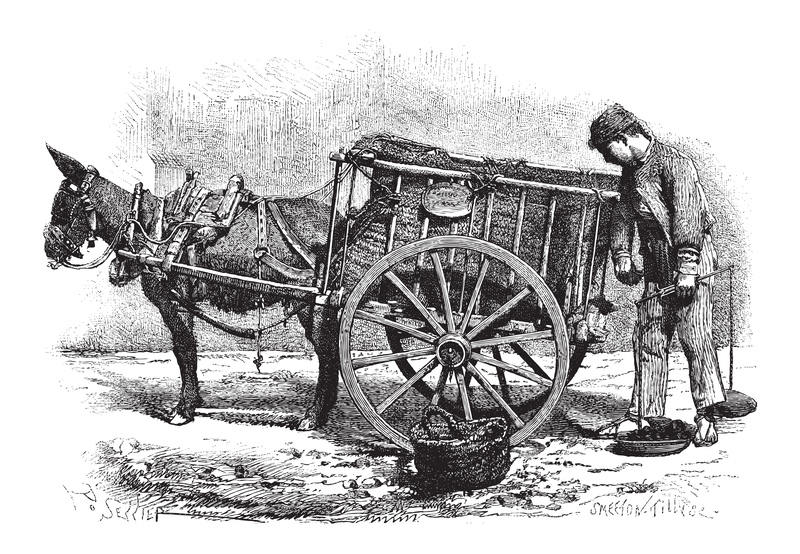Maximizing Recycling Efforts at Home: Tips and Tricks
Posted on 02/06/2024
In today's world, where environmental concerns are at an all-time high, recycling has become more important than ever. Recycling is the process of converting waste materials into reusable objects to reduce the consumption of raw materials and energy usage. While many people understand the importance of recycling, they may not know how to maximize their efforts at home. Luckily, there are several simple tips and tricks that can help you make a significant impact in your recycling efforts. This article will discuss some practical ways to improve your recycling habits and contribute to a greener planet.
The Benefits of Recycling
Before we dive into the tips and tricks, let's first understand why recycling is crucial. Here are some benefits of recycling that highlight its significance:
- Reduces greenhouse gases: By reusing materials instead of extracting new ones, recycling reduces the production of greenhouse gases that contribute to climate change.
- Saves energy: The production of new products requires a significant amount of energy. Recycling saves energy by using already existing materials, which reduces the need for manufacturing from scratch.
- Conserves natural resources: Recycling helps conserve natural resources like water, timber, and minerals by reducing the need for extracting new raw materials.
- Decreases landfill waste: By diverting recyclable materials from landfills, recycling helps reduce the amount of waste that ends up in these areas.
- Creates jobs: Recycling is an industry that provides employment opportunities for millions of people worldwide.

Maximizing Your Recycling Efforts at Home
1. Know What Can be Recycled
The first step in maximizing your recycling efforts is knowing what can be recycled. Many people unknowingly throw away items that could have been recycled because they are not aware of what can or cannot be recycled. It's crucial to familiarize yourself with your local recycling guidelines to understand which items should go into your recycling bin.
Generally, paper products like newspapers, cardboard boxes, and magazines are recyclable. Glass bottles, aluminum cans, and plastic containers can also be recycled. However, it's essential to check the recycling number on plastic items as not all of them can be recycled.
2. Rinse and Dry Your Recyclables
Before tossing your recyclables into the bin, make sure to rinse out any residue or food particles. This ensures that the materials can be properly recycled without contamination. Wet paper products cannot be recycled, so it's crucial to dry them before placing them in the recycling bin.
3. Invest in a Compost Bin
While some items may not be recyclable, they can still be diverted from landfills through composting. Food scraps, yard waste, and even some paper products can be composted at home. Investing in a compost bin is an excellent way to reduce your household waste and create nutrient-rich soil for your garden.
4. Try DIY Upcycling Projects
Instead of throwing away old or broken items, look for ways to repurpose them through DIY upcycling projects. Upcycling involves turning unwanted materials into something of higher value or quality. For example, you could turn an old t-shirt into a reusable shopping bag or use mason jars as storage containers.
5. Donate Old Items
Decluttering your home? Instead of throwing away old clothes, books, or furniture, consider donating them to someone in need. Donating not only reduces the amount of waste going into landfills but also benefits those who could use the items.

The Downside of Recycling
While there are numerous benefits to recycling, it's also essential to acknowledge its limitations and drawbacks:
- Can be costly: Recycling programs require funding for sorting, processing, and transportation of materials.
- Limited market demand: Some materials may not have a significant market demand for recycled products.
- Contamination risks: If recyclable materials are contaminated with non-recyclables, the entire batch may end up in a landfill.
- Energy consumption: Recycling still requires energy for transportation, processing, and manufacturing of recycled products.
Conclusion
Recycling is a simple yet effective way to make a positive impact on the environment. By following these tips and tricks, you can maximize your recycling efforts at home and contribute to a healthier planet for future generations. Remember to stay informed about your local recycling guidelines and always take the extra step to ensure that your recyclables are clean and dry before placing them in the bin. Together, we can work towards a more sustainable future through responsible recycling practices.


 office@benandjerry.org.uk
office@benandjerry.org.uk https://benandjerry.org.uk/
https://benandjerry.org.uk/

